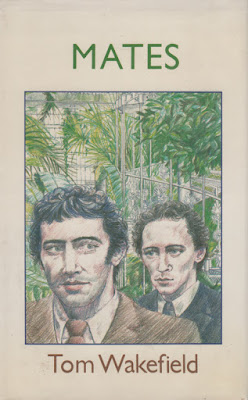 |
| London : Gay Men's Press, 1983 |
Len’s father is very accepting of Len and Cyril’s friendship when they come for a visit … even giving up his double bed so that the 'mates' can stay together. At the end of the novel, Len is treated quite badly by Cyril's sister. Wakefield seems to be making a statement here about the earlier generation actually being a bit more accepting than the current generation (1980s). This makes some sense since in Britain, men who grew up in the early part of the 20th century would have had a very different experience. Tom Wakefield was born in 1935, so his father would likely have been born no later than the early teens.
Although published after Mates, many of the themes explored appear to have been worked out in the short stories in Drifters (1984). Not being on the same page about commitment or 'settling down' appears in the stories, The Nature Lover and A Man to Share. In the short story Gypsies, John and his partner Alan discover that John’s nephew-in-law (his niece’s husband) plans to have them sleep in separate beds on different floors, because he can't handle the thought of them sleeping in the same bed.
Mates is a truly touching novel. Each chapter feels genuine and shows the gay experience over the course of nearly 30 years.
Having recently recommended this book to a friend, I decided to re-read it. It's striking to see a novel about, what the dustjacket terms 'ordinary gays', who must deal with death from something so common as a heart attack. And that the horrible relatives who haven't been a part of your life for decades were swooping in to take everything from your partner even before the AIDS crisis.
ReplyDelete